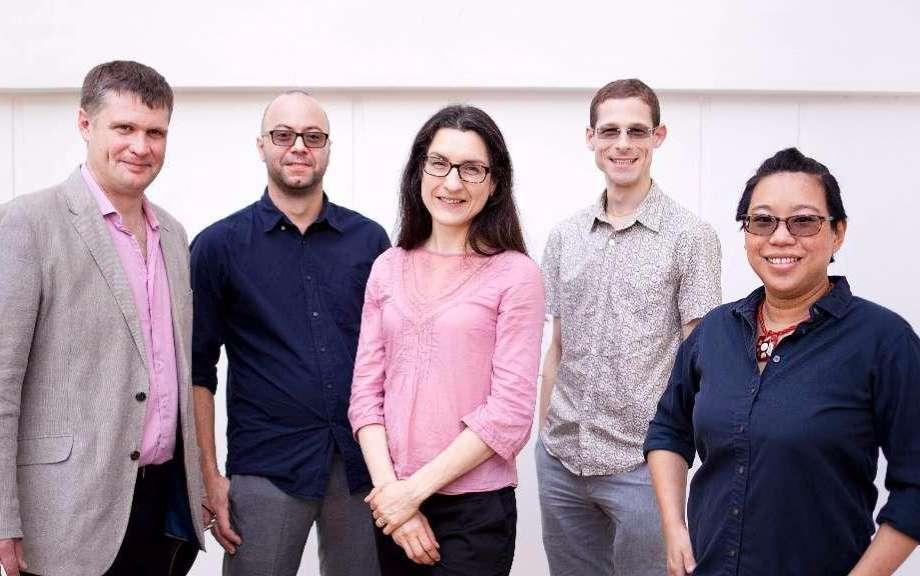Collaboration with the National Oceanography Centre UK
Sunday 6 December 2015

Prof. Richard Sanders (left) with Dr. Müller and the research team which was awarded a Newton Fund grant worth RM1 million for oceanographic research around Sarawak.
In summary
- Joint research collaboration between Swinburne, UNIMAS, National Oceanography Centre, UK.
- Borneo is of interest because little is known about what happens to carbon and organic material once it is released into the rivers.
Prof Richard Sanders from the National Oceanography Centre UK was at Swinburne to discuss ways to collaborate in Oceanographic research. A member of his team has just won a Newton Fund (worth RM1 million) in collaboration with Assoc Prof Müller from Swinburne and Dr. Aazani Mujahid from UNIMAS. The project will examine how multiple land use affects the health and socio-economic value of aquatic environments in Sarawak.
Prof. Sanders mentioned that one of the main reasons why Borneo is of interest, is that relatively little is known about what happens to carbon and organic material once it is released into the rivers in and around Borneo. Results, published by Asoc Prof. Müller obtained from several years of CO2 measurements in local rivers, were much lower than commonly expected, making Borneo an even more unique place to study.
Future work proposed by Prof. Sanders included the National Oceanography Centre’s Discovery ship (one of the worlds most advanced research vessels) coming to Borneo waters as part of a research cruise in the Indian Ocean. This unique ship is augmented by absolute high-end technology such as gliders and auto-submarines; some of which could be possibly be set up in the rivers around Borneo; hopefully solving one of the many secrets still locked up in Bornean waters.